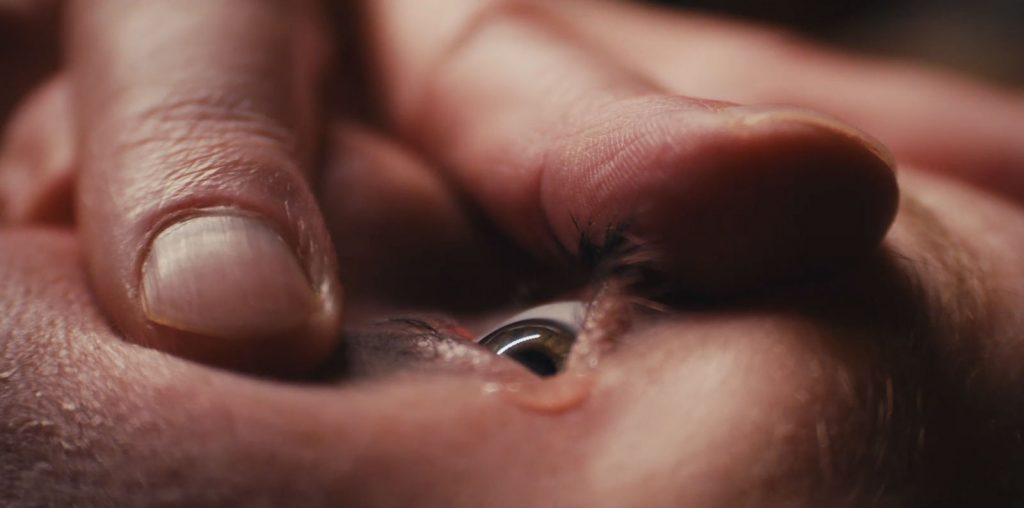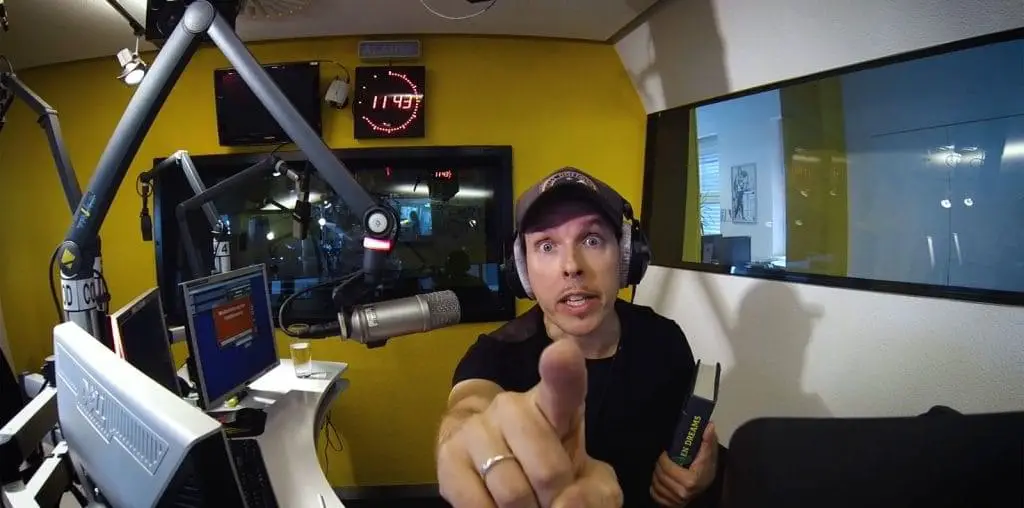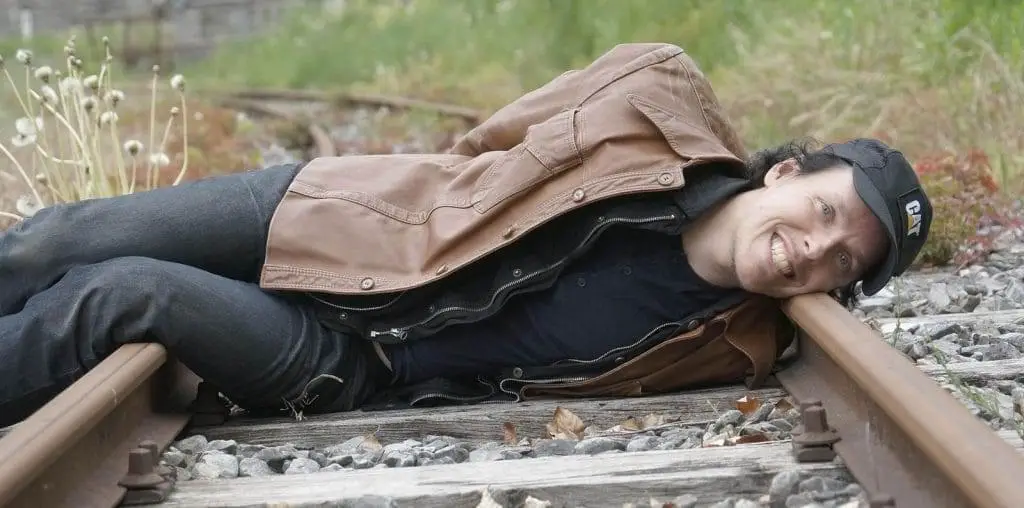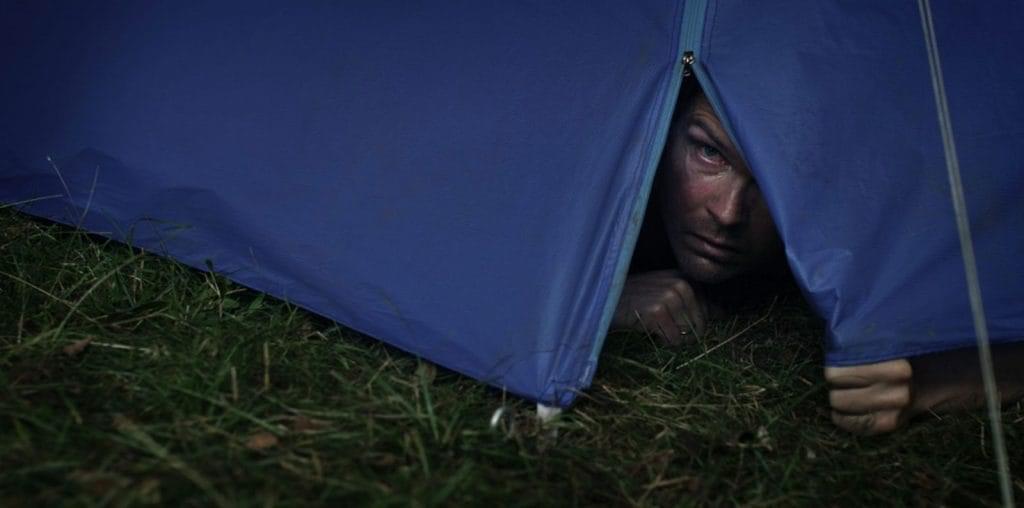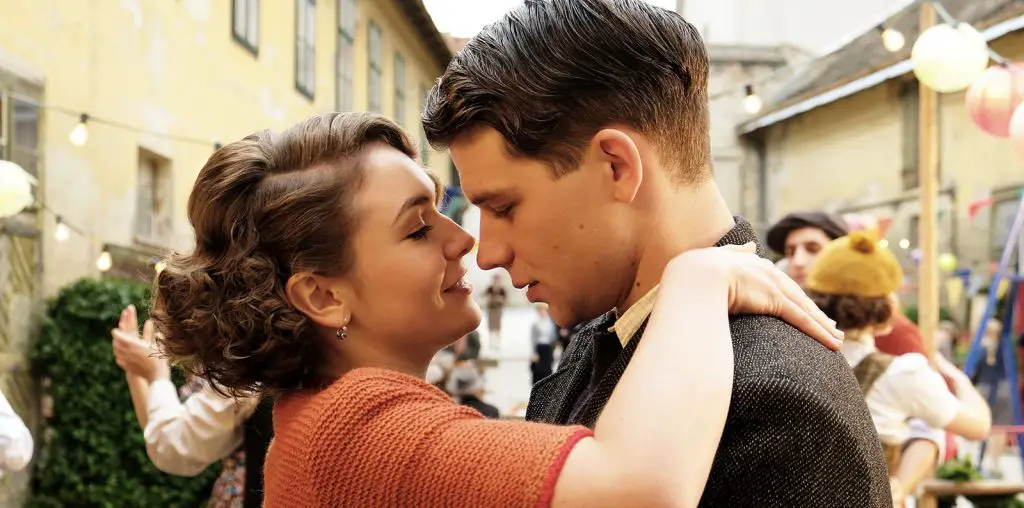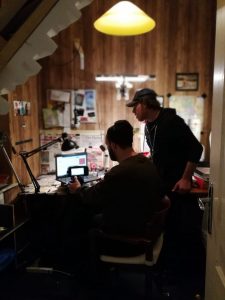
To come back to the formal: What is your personal relationship to details, to macro levels, to immersing yourself in things and looking closely at surfaces and contexts?
I have always been fascinated by magnification. I remember an episode of the series UFO from the 1970s, where the organization, S.H.A.D.O. (ah, nostalgia!), manages to take photos of an alien planet by a space probe. However, due to a defect, the size information is not transmitted. The scientist in charge is horrified because the photos are completely useless without dimensions. To make this clear, he shows blow-ups of everyday objects, which look completely bizarre and are not recognized.
That gave me a massive aha effect when I was seven, and I haven’t recovered from it to this day. Even if you look at my Instagram account, it’s clear: I like to pick out details, show them in a way that almost completely detaches them, let them become texture. And with a cinematographer like Florian Hofer on hand, who is also very enthusiastic about macro aesthetics, it was clear that I would push this to the extreme. Aesthetic disinhibition as f**k.
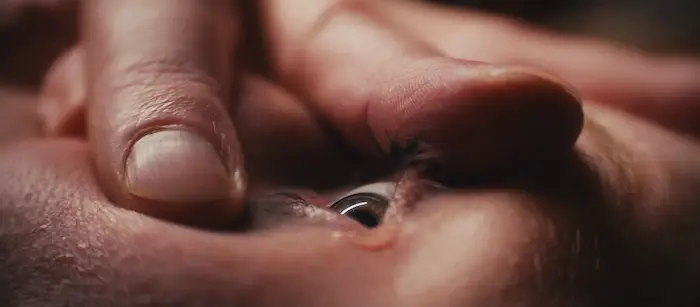
How did this cooperation take shape?
I met Florian Hofer at the 2019 Porn Film Festival Vienna. He had shot a very casual, artsy short porn with director David Kleinl that won the award for Best Austrian Porn Short. David introduced us, “If you ever need a real camera freak for a project, please work with Flo.” I took that to heart. Then, in the fall, we started turning a room in my apartment in Vienna into the protagonist’s lab cave. This allowed me to work very cost-effectively.
But it wasn’t that easy to create the space. The action takes place in early summer 2019 in a house in Apopka, Florida, and it was clear that I had to be very careful with the props in order to be able to plausibly show the illusion of American averageness. That’s why I brought a whole suitcase of everyday objects from Florida to Austria, from water bottles to rulers, from algae powder to scalpels. I couldn’t get sloppy there. Every now and then, a few European details crept into the picture. I removed them as radically as possible in post-production. I turn into a Langolier when it comes to things like this.
In general, the work on the film was certainly as pedantic as the storyline portrayed. We couldn’t actually make any original sound recordings due to the complicated macro filming. My wonderful sound designer Lenja Gathmann recreated all the sounds on her desk. She sent me photos and videos several times – and it really looked like on the set after a week with her. Conclusion: We were all, from camera to sound design, from score to editing, often with one foot in madness.
What concept or notion of suspense do you follow?
I never show the bomb under the table. It’s only in the minds of the viewers because the film is labeled as horror. That’s why there’s an expectation, of course. However, I’m already aware that many genre fans won’t be able to do anything with it either. It’s more of a character study, a form of voyeurism, an almost pornographic look at decay and disgust.
Many of the plot elements and experiments are borrowed from my own sense of revulsion. For example, up until the beginning of the shoot, I had a bottomless aversion to slugs. After keeping any number of them in a terrarium for over two months and having to feed and care for them every day, however, that feeling quickly subsided. After four days they all had names, and it was no longer a problem to let them crawl over my hand. Jasmin Hagendorfer, my co-producer, also totally fell in love with the critters.
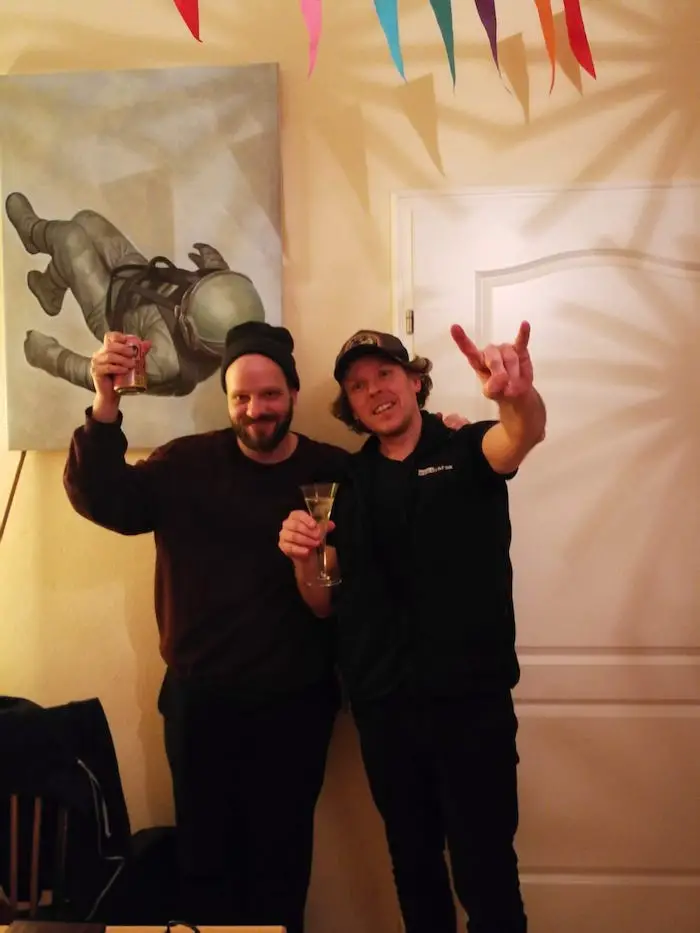
As a nerd, do you have sympathy for weird parallel worlds? Or is it rather the attempt to free yourself from such influences?
There is quite a bit of cathartic work on one’s own resume, of course. Self-exorcism. I draw experience and knowledge from my life. Michael Haneke once said that we should only make films about things we know and have experienced. I don’t agree with that one hundred percent. After all, I would love to make a space pirate film. However, for example, I know the Florida locations mentioned in the film like the back of my hand because I’ve been in Apopka on and off since the 1990s. And there are existing templates for the characters in the film that are relevant to the plot. I did take my cue from many of the hackers who populate the world’s makerspaces and IT conventions, and certainly the young, male clientele of one Jordan Peterson.
It was interesting to create a person who is part of a minority, who also knows this and integrates it into his identity, but who is also an a*****e. A person who is so privileged to have a degree in physics in the U.S., but yet always feels the world owes him more. Ideologically, he is certainly no Anders Behring Breivik, nor is he a classic incel amok runner, but he meets them in the madness of consequence.
The music team was also able to amplify the “drifting” and make it tangible. Tina “Tina 303” Gruensteidl and Mathias Augdoppler have created a wonderfully atmospheric sound that is almost subliminal at first, but becomes increasingly smug until it is finally shrill and haunting. Tina incorporated her own experiences as a long-time tinnitus sufferer into the score. She was very vehement about it, “It doesn’t sound like that! THIS is how it sounds!” I could not have wished for better partners.
In your eyes, is there a “right” and a “wrong” way to do science, a “good” and an “evil” science? Where do the boundaries run? When is a scientist a “mad scientist”? When does a theory become a conspiracy narrative?
Good that you use the term “conspiracy narrative.” I have a very personal and deep aversion to the term “conspiracy theory.” It should rather be called “conspiracy hypothesis”. The guy in my film is not a scientist. He’s more what we call in the German-speaking world a “private scholar,” which I think has always sounded like Ernst Stavro Blofeld. From the very beginning, my protagonist is what he despises most: an alchemist. In the Anglo-American world, a very specific distinction is made between “scientists” and “scholars”, which is a clearer separation than that between natural scientists and humanists. Of course, this also has something to do with what society considers to be “true” science and what is not. “Mad scholars” are rather rare, although I consider that a pity.
Epistemologically, I have always been a fanboy of Radical Constructivism. Memory is the most important sense organ: most of what we perceive comes from it. We always perceive through the glasses of our memory, because what we perceive is decisively co-determined by earlier perceptions.
(Shorten version of an interview originally created in German for Zebrabutter.)
